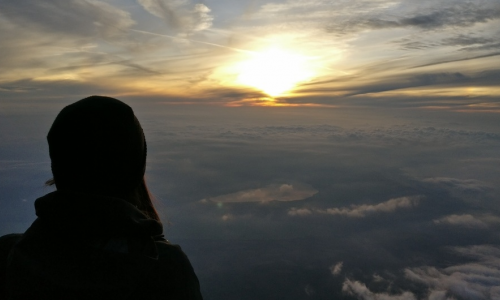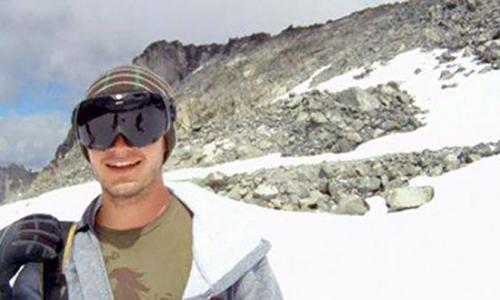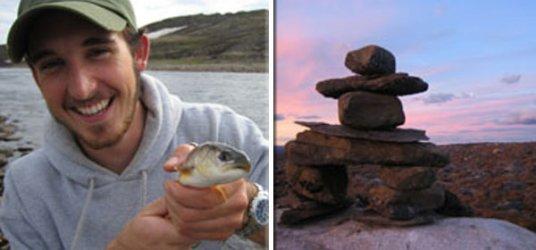
The plane from Ottawa to Iqaluit took an extra twenty minutes to get off the tarmac as luggage handlers tried to cram mounds of scientific equipment into the hold of the 737. The plane was full, but only a few onboard were heading home. The majority of passengers were either transient government officials or prospectors looking to cash in on the mineral boom in one of the last great frontiers. I was neither an official nor a geologist, but was onboard for my final Co-op work term as part of the Distant Early Warning (DEW) line clean up project.
Constructed at the height of the Cold War as a deterrent to the perceived Soviet threat, a series of now derelict radar installations rise from the barren tundra of the Canadian Arctic Archipelago. Permeated with polychlorinated biphenyls (PCBs), heavy metals and hydrocarbons, the heavily contaminated sites are in the process of being decommissioned and deconstructed as part of the largest environmental clean up in Canadian history.
The Environmental Sciences Group, based at the Royal Military College in Kingston, Ontario, is contracted to undertake the scientific assessment of the clean up project. Every field season students are trained and sent north as part of the clean up effort, and in the summer of 2006 I earned an opportunity to partake in this incredible experience.
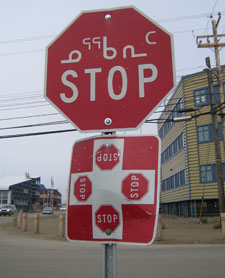
Prior to this work term I had relatively limited experience abroad. I had traveled a bit to see family in Europe, and spent time in New Zealand with my significant other. Previous work terms had me on the road for a week at a time, but I was never more than a phone call away from a caring ear. I had heard so much about out-of-town placements, and I yearned for the adventure. But I was nervous to leave behind my social safety net. I felt like a child at the first day of kindergarten, hiding behind my mom at the threshold of the school. Lucky for me, some sage advice from a few good friends and the co-op program pushed me out the door and towards adventure where I learned that the things I feared most about leaving home are the same things that make leaving home so great.
A few months later I was living in student housing from Queen’s with a fellow SFU co-op student. We didn’t really know each other prior to moving back east, but we soon became great friends and colleagues as we passed through the weeks of rigorous training at the RMC campus. Our employer was superbly organised and provided training on everything from cultural sensitivity to ATV maintenance to chemical test kits, and after passing the quality assurance tests I was finally heading off to FOX-3, Baffin Island.
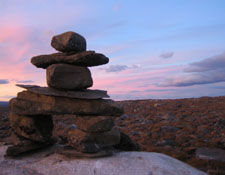
With the luggage safely stowed, the jet engines rumbled to life and the plane shot northward. Within a few hours I was greeted by the foreign but sweet tongue of Inuktitut welcoming me to Iqaluit.
A modern outpost by northern standards, Iqaluit houses only 6500 people in colourful modular buildings that line dirt roads. I spent one night in the city as a rendezvous point for team members from other consultant companies I would be working with on site. It was here that the isolation of my position really began to set in.
Travelling another few hours north by turboprop, camp housed at most thirty people, including the cook, wildlife monitors and camp outfitter. A chartered flight would come in once a week with supplies, and other than an unreliable satellite phone, we were completely isolated by hundreds of kilometres of rocky tundra. This environment forced me to not only become more self-reliant, but also developed a greater sense of the value of community. I had to re-sew my social safety net, and along the way I reinforced the weak spots.
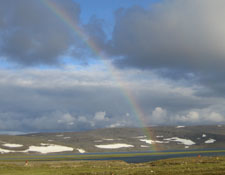
I gained confidence in my strengths of organization and compromise, while improving my communication skills. The camp developed into a tightly knit family where people looked out for one another, shared their strengths and learned to overcome differences.
My worries about fledging from home were now distant memories as I soared into new challenges. At last I was engaging in the adventure that I had longed for, and how sweet it is!
Be it waiting ‘rush hour traffic’ as I waited for a caribou to cross the road, or toiling under a sun that never set, I was enveloped by the mysterious allure of the tundra. There was not a single moment I was not smiling and savouring the experience. My time in the North provided me a sense of how I fit in with the natural world, my work provided me with the satisfaction of knowing that I am making a tangible difference, and my co-op experience made it all possible.
I am often asked why I selected SFU, to which I reply with an outline of the benefits the strong Co-op program offers. Initially I, like many students, viewed university as place where learning was only about lectures and exams. However, I pushed myself to expand my views and was rewarded with fantastic opportunities and an education that goes far beyond those overpriced textbooks.
Poet William Yeats provides some particularly inspiring words in saying that "education is not filling a bucket, but lighting a fire." In my university career, Co-op has acted as the spark, lighting the fire and inspiring me to reach out for my goals. Without a doubt my Co-operative Education experience, particularly the time spent up North, was a pinnacle of my education and left me with absolute confirmation that I am on the right path.












